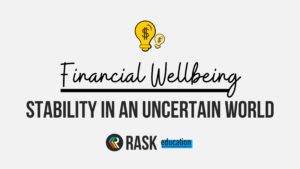What does liquidity mean?
In the video tutorial above, Owen answers what liquidity means, the risk of illiquidity and the liquidity ‘premium’.
What is Liquidity?
Liquidity is a measure of how easy it is to buy or sell an investment at the latest market price.
For example, let’s say you wanted to sell some shares and the latest market price for those shares is $10 each. If the shares are highly liquid (meaning there are lots of buyers and sellers) you could sell them around $10 with no problem.
But let’s say there are NO buyers and NO sellers. They would be harder to sell, right? If that was the case we would say it is LESS ‘illiquid’.
For most investors, MORE liquidity = BETTER.
Examples of highly liquid assets
In a normal market, it should be painless/easy to enter and exit positions in:
- Blue-chip shares
- Cash accounts
- Term deposits
- Short-term bonds
Examples of illiquid assets
Even in a normal market, it may be difficult to enter and exit positions in:
- Residential property (typically it takes a few months)
- Commercial property (longer again)
- Private equity, venture capital and other ‘alternative’ investments
- Small company shares
Liquidity of blue-chip shares
In a normal market, an investor should be able to buy or sell blue-chip shares quickly and at a price near the market price. Therefore, they are highly liquid.
Liquidity of small-cap shares
Even in a normal market, small-cap shares may be difficult or time-consuming to buy and sell. For example, 1,000,000 shares might be bought/sold in a blue-chip company each day. In a small company, sometimes there will be none!
If you’re buying or selling shares in small companies be extra careful with your buy/sell orders and remain patient!
Liquidity in residential and commercial property
Property is an example of an illiquid asset. Meaning, it’s hard or time-consuming to buy or sell.
For example, if you want to sell your house you’ll likely have to take photos, speak to a real estate agent, list it on the market, talk to a lawyer and agree to a settlement date with the buyer (which could be months).
Can liquidity lead to better investment returns?
Yes.
For example, if you’re a long-term investor and do not plan to sell your shares, property or bonds anytime soon (meaning you’re happy to own them for 5+ years) you might be able to achieve a better return over many years.
Why?
If it’s harder for a BIG investor to buy shares (because they’re illiquid) it may be easier for a small investor to find undervalued companies. Meaning, you can buy before bigger investors!
What’s more, if they are fewer shares to go around, other investors might be willing to pay more for them.
[ls_content_block id=”27643″ para=”paragraphs”]



